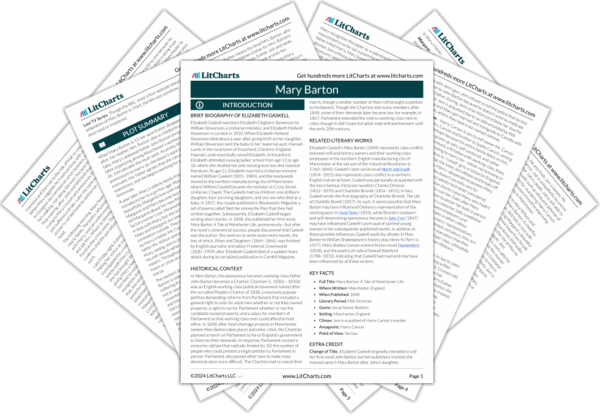Previously in the novel, John has alluded to his baby son Tom, who starved to death, as an example of the sort of suffering that the rich employer class doesn’t understand and has failed to alleviate it. When he thinks of Tom here, it suggests he is fortifying himself to take some action against the employers.
